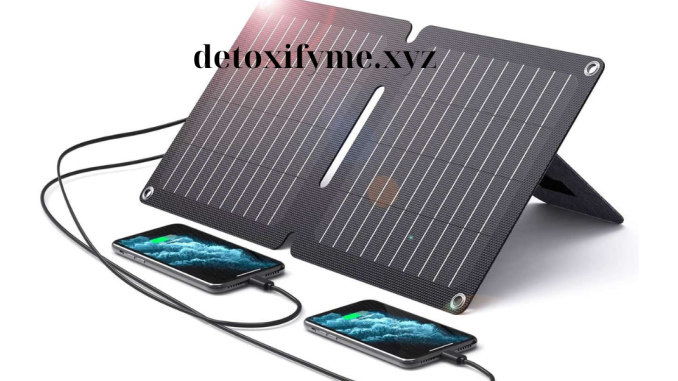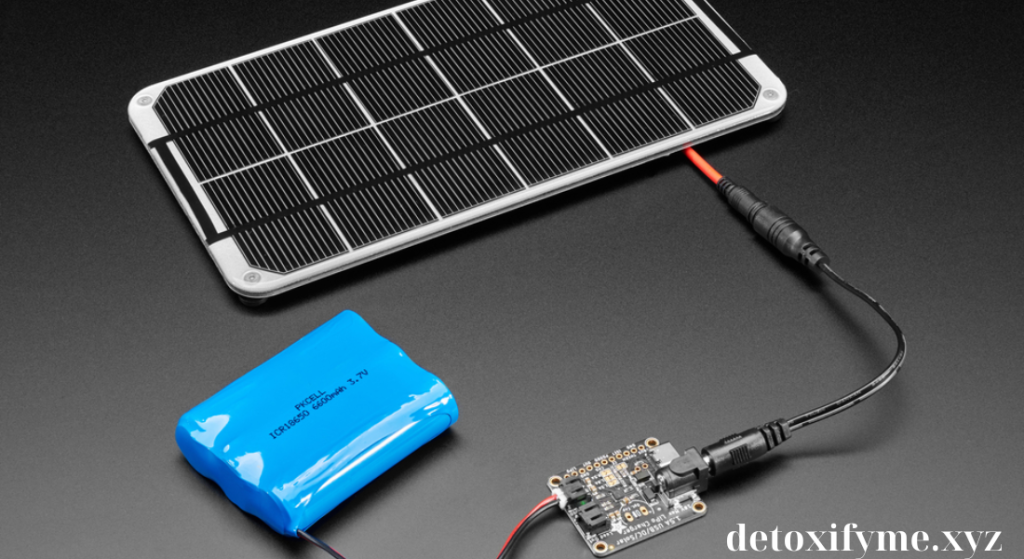
Powering Your Devices Sustainably: A Comprehensive Guide to Solar Chargers
In today’s world, staying connected has become essential, even during outdoor adventures or power outages. But relying on traditional power sources can be challenging and often limited in remote locations. Solar chargers provide a sustainable solution, allowing you to charge your devices using the energy of the sun. In this guide, we’ll explore everything you need to know about solar chargers, their benefits, and how to choose the best one for your needs.
What is a Solar Charger?
A solar charger is a portable device that harnesses sunlight to generate electricity, which can then be used to charge electronic devices like smartphones, tablets, cameras, and even small appliances. These chargers contain solar panels, which capture sunlight and convert it into electrical energy through photovoltaic cells.
Solar chargers vary in size, power output, and design, but they all operate on the same principle—capturing sunlight and converting it into a usable energy source.
How Does a Solar Charger Work?
The photovoltaic cells in a solar charger absorb photons from sunlight, which knocks electrons loose from atoms within the cells. This creates an electric flow, generating direct current (DC) electricity. The DC power is then either stored in an internal battery within the charger or directly delivered to the device you’re charging.
Key Components of a Solar Charger:
- Solar Panels: The most crucial part, these panels convert sunlight into electricity.
- Battery (Optional): Some solar chargers include a built-in battery to store power for later use.
- Charge Controller: Ensures a stable and consistent power flow to protect your devices from overcharging.
- USB Ports and DC Output: Allows you to connect and charge various types of devices.
Benefits of Using a Solar Charger
Opting for a solar charger has several distinct advantages, making it a valuable tool for those who need reliable power on the go.
1. Eco-Friendly and Renewable
Solar chargers rely on renewable energy—sunlight. This reduces reliance on traditional power sources, cuts down on battery waste, and provides a cleaner energy option. Using solar energy helps decrease greenhouse gas emissions, contributing to a healthier planet.
2. Cost-Effective Solution
Once you’ve invested in a solar charger, using it is free. There are no ongoing costs associated with solar charging, as it doesn’t require fuel or electricity. Over time, this can lead to significant savings, especially for those who frequently charge devices while away from traditional power sources.
3. Portable and Convenient
Modern solar chargers are designed for portability. They’re lightweight, compact, and easy to carry, making them ideal for camping, hiking, or long trips. Some models are foldable, allowing you to carry them in your backpack without occupying much space.
4. Energy Independence
With a solar charger, you’re not reliant on power outlets or generators. You can charge your devices as long as there is sunlight, giving you greater flexibility, especially in remote areas or during power outages.
Types of Solar Chargers
There are several types of solar chargers available, each designed to meet different needs and use cases.
1. Foldable Solar Chargers
These are portable chargers that fold up into a compact design for easy storage and transport. Foldable solar chargers typically have a higher power output, making them suitable for charging larger devices like tablets or multiple devices simultaneously.
2. Solar Power Banks
Solar power banks combine solar charging capabilities with built-in battery storage. They charge in the sun and store energy for later use, making them perfect for users who need power during nighttime or on cloudy days.
3. Fixed Solar Panels for Camping
These are larger solar panels that are intended for stationary use, such as at a campsite. They often have higher power output and can charge several devices at once, making them a reliable option for groups.
4. Compact Solar Chargers
Compact chargers are small, lightweight, and perfect for single-device charging. They are ideal for minimalists who only need to charge small devices like phones or GPS units.
How to Choose the Right Solar Charger
When selecting a solar charger, consider your specific needs, budget, and the types of devices you’ll be charging. Here are a few key factors to keep in mind:
1. Power Output (Wattage)
The power output determines how quickly and effectively the solar charger can charge your devices. Higher wattage chargers are more powerful and suitable for charging multiple devices simultaneously. Look for a charger with at least 10 watts for basic needs, and 20 watts or more if you need faster or multi-device charging.
2. Portability and Size
If you’re an avid camper or hiker, a lightweight and compact charger is essential. Foldable designs are great for portability, allowing you to pack them easily. For stationary use, a larger solar panel charger might be a better option.
3. Battery Storage
If you need to charge devices at night or on cloudy days, consider a solar charger with a built-in battery. This will allow you to store energy and use it whenever needed.
4. Weather Resistance
Since solar chargers are often used outdoors, a weather-resistant model is a good choice. Look for water-resistant or dust-proof designs to ensure durability.
5. Charging Options and Compatibility
Some solar chargers come with multiple USB ports or additional charging options. Ensure that the charger is compatible with your devices and can deliver enough power to charge them effectively.

Tips for Maximizing Solar Charging Efficiency
To get the best results from your solar charger, follow these practical tips:
- Position in Direct Sunlight: Solar chargers work best in direct sunlight. Avoid shade and angle the charger to capture the maximum amount of sunlight throughout the day.
- Keep the Panels Clean: Dust and dirt can reduce the efficiency of solar panels. Regularly clean them to maintain optimal performance.
- Avoid Overheating: Extreme heat can damage some chargers and reduce efficiency. Avoid placing the charger on hot surfaces and keep it ventilated when possible.
- Use During Peak Sun Hours: Solar chargers are most effective during peak sunlight hours, generally between 10 AM and 4 PM. Try to position your charger during these times for maximum efficiency.
- Monitor Battery Levels: If your solar charger has a built-in battery, monitor its levels to avoid overcharging or discharging.
Frequently Asked Questions
1. Can a solar charger work on cloudy days?
Yes, but the efficiency is reduced. On cloudy days, a solar charger will still generate electricity, but at a slower rate. Models with built-in batteries are ideal for such conditions, as they allow you to store energy on sunny days for later use.
2. Are solar chargers safe for my devices?
Most high-quality solar chargers include charge controllers to protect your devices from overcharging. Ensure you choose a reputable model with built-in safety features.
3. How long does it take to charge a phone using a solar charger?
Charging times depend on the solar charger’s power output and sunlight intensity. On average, a 10-watt solar charger can take 2-4 hours to fully charge a smartphone under optimal sunlight.
Conclusion
Solar chargers offer an eco-friendly, portable, and cost-effective solution for keeping devices powered on the go. By harnessing solar energy, these chargers eliminate the need for traditional power sources, making them ideal for outdoor enthusiasts, travelers, and anyone looking to reduce their carbon footprint. Whether you need a compact charger for a day trip or a high-capacity power bank for extended use, the right solar charger can keep you connected anywhere, anytime.
Invest in a solar charger today to experience the benefits of sustainable energy and enjoy uninterrupted power for all your devices.
Leave a Reply